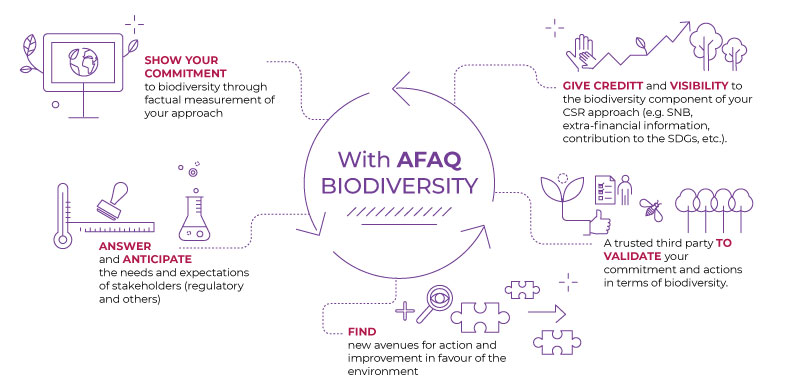
A cornerstone of sustainable development, biodiversity is a priority for the ecological transition. Oxygen, soil fertilization, water purification, pollination and flood prevention: preserving natural environments and ecosystems is essential to the planet’s equilibrium. In recent decades, however, increasing urbanization, pollution from human activities and climate change have put these fragile natural balances at risk.
A plan launched in 2018 by the French government encourages companies to focus on biodiversity, which is one of the
17 UN SDGs (Sustainable Development Goals)
and incorporates the “ERC” sequence (avoid, reduce, compensate). The AFNOR group supports economic players in this process with jointly-constructed standards and objective signs of recognition.
Biodiversity, at the heart of sustainable development
When it comes to biodiversity, relying on a clear framework shared by as many people as possible means speaking the same language and securing your commitment. This is the purpose of the standards developed by industry players at national level with AFNOR, in particular the NF X32-001 standard, and at international level with ISO. What’s more, AFAQ Biodiversité’s certification guarantees that your approach is both relevant and effective. Download the AFNOR Certification guide to help you prepare for certification. Then self-assess your organization in 20 questions via a free online test to check that you’re ready for AFAQ Biodiversity certification.

Another option: ISO 14001 certification. This sign of recognition validates the robustness of your environmental management system (EMS). More comprehensive than AFAQ Biodiversity, the ISO 14001 standard covers all environmental issues (water, air, waste, etc.).
Other certifications, such as AFAQ Ports propres for marinas, are proving their worth by being specific to certain very precise activities. Objective: to make concrete commitments to preserve aquatic environments and ensure the sustainable development of coastal and maritime activities.
